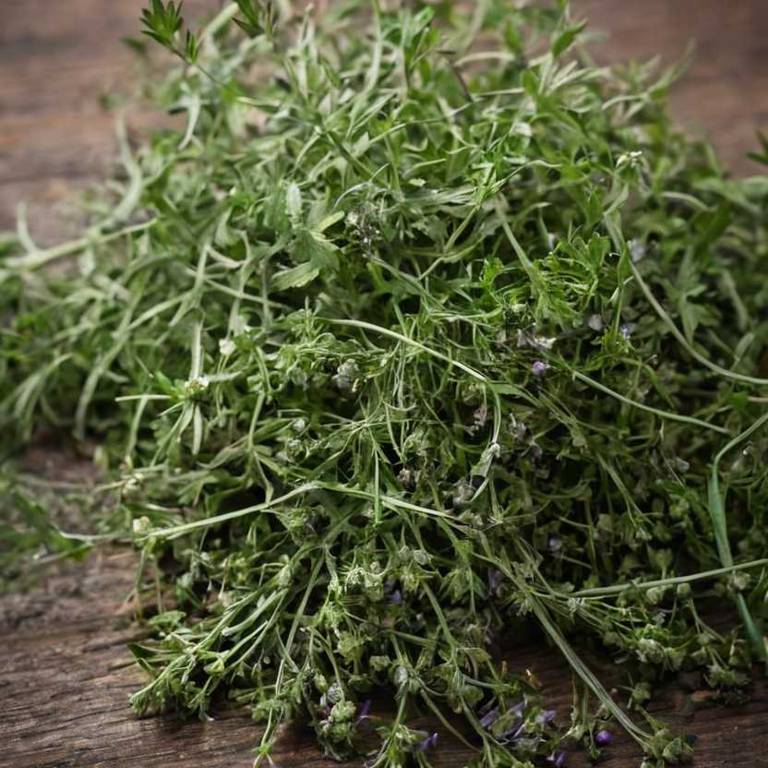Chinese Catnip (Schizonepeta tenuifolia)
Chinese Catnip (Schizonepeta tenuifolia) is a member of the Lamiaceae family, native to China, East Asia, and Eastern Asia. Traditionally, its stems, leaves, and flowers have been used for decoctions, infusions, and powders.
This herb is particularly valued for its anti-inflammatory, antispasmodic, and tonic actions, and has a long history of use in traditional chinese medicine, japanese kampo medicine, and korean traditional medicine.

Quick Facts / Key Information
| Common Name | Chinese Catnip |
|---|---|
| Scientific Name | Schizonepeta tenuifolia |
| Plant Family | Lamiaceae |
| Genus | Schizonepeta |
| Species | tenuifolia |
| Native Range | China, East Asia, Eastern Asia |
| Plant Parts Used | Stems, Leaves, Flowers |
| Primary Medicinal Actions | Anti-Inflammatory, Antispasmodic, Tonic |
| Primary Traditional Systems | Traditional Chinese Medicine, Japanese Kampo Medicine, Korean Traditional Medicine |
| Historical Preparation Methods | Decoction, Infusion, Powder |
Botanical Identity
- Scientific Name
- Schizonepeta tenuifolia
- Common Name
- Chinese Catnip
- Synonyms / Alternative Names
- Japanese Catnip, Schizonepeta, Chinese Colewort
- Plant Family
- Lamiaceae
- Genus
- Schizonepeta
Botanical Description
- Growth Habit
- Perennial herbaceous plant.
- Height
- It typically grows to a height of 30 to 100 centimeters.
- Leaves
- Ovate leaves with upper surface glabrous and pale green, lower surface hairy and darker green, possessing distinct stomatal bands along the midrib.
- Flowers
- Flowers are bilaterally symmetric with opposite pairs of lanceolate bracts bearing tubular corollas of pale violet to purple hues arranged in dense spikes
- Stems
- Elongated, erect growth habit, opposite branching pattern, glabrous surface, four-angled cross-section.
Traditional Uses / Historical Use
Traditional Systems
- Traditional Chinese Medicine
- Japanese Kampo Medicine
- Korean Traditional Medicine
Historical Preparation Methods
- Decoction
- Infusion
- Powder
- Poultice
Medicinal Actions
- Anti-inflammatory
- In herbal literature, noted as a warming anti-inflammatory, for general calming applications.
- Antispasmodic
- Traditionally described as a calming antispasmodic, in smooth muscle contexts.
- Tonic
- Commonly referenced as a gentle tonic, in general wellness contexts.
- Bitter
- In herbal texts, considered a moderate bitter, in bitter herb groupings.
Active Compounds
- Flavonoid
- A group of naturally occurring compounds commonly present in many flowering plants.
- Essential Oil
- A collective term for aromatic compounds extracted from plant material.
- Coumarin
- A group of secondary metabolites present in seeds, roots, and leaves.
- Phenolic Acid
- Naturally occurring phenolic compounds present in many plant species.
Modern Research Overview
Contemporary research on this plant includes areas such as chemical analysis, laboratory-based studies, and observational research. Detailed summaries of published findings are not included at this stage and will be added during future content updates.
Safety & Contraindications
- General Precautions
- Precautionary considerations have been reported in relation to this herb.
- Contraindications
- Reports outlining specific contraindications for this herb are limited.
- Allergies
- Information regarding allergic responses to this herb is limited.
- Drug Interactions
- There is insufficient evidence to determine whether this herb interacts with pharmaceutical drugs.
- Toxicity
- Toxic effects associated with this herb have not been well documented.
- Pregnancy & Breastfeeding
- There is insufficient evidence to determine the safety of this herb during pregnancy or breastfeeding.
Preparation & Usage Methods
- Infusion
- Infusions are commonly prepared using hot water to release aromatic and soluble components.
- Decoction
- Decoctions are made by heating plant material in water for an extended time.
- Poultice
- Plant parts are crushed or moistened and placed directly on the body.
- Powder
- Plant parts are dried and mechanically reduced to a powdered form.
- Tincture
- Tinctures are liquid extracts produced through alcoholic maceration.
Growing, Harvesting & Storage
Growing / Cultivation
- Soil
- Prefers loamy soil with well-drained conditions. Typically grows best in organically rich soils.
- Sunlight
- Thrives in partial sun. Tolerates full sun to partial shade.
- Watering
- Prefers well-balanced moisture levels. Tolerates periodic dry conditions.
Medical Disclaimer
The information provided on this page is for educational and informational purposes only. It is not intended to diagnose, treat, cure, or prevent any medical condition. Always consult a qualified healthcare professional before using any herb for medicinal purposes.